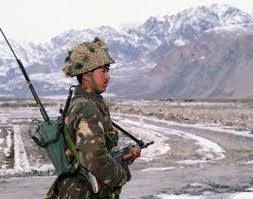
Madness over the Himalayas: Time to demilitarise the Siachen Glacier
For nearly three decades, India and Pakistan have engaged in a maddening conflict over Siachen Glacier in the Himalyan peaks of the disputed Kashmir region. The “world’s highest battlefield” has claimed thousands of lives due to hostile weather conditions—frostbite, avalanches and blizzards—along with over a hundred soldiers killed in sporadic combat until 2003, when the two countries agreed to a ceasefire across the Line of Control in Kashmir. The weather’s latest victims are 139 Pakistani soldiers who were buried deep in snow after an avalanche hit their Gyari battalion headquarters on April 7. Since then, the worsening weather has prevented the rescuers to gain access even to their dead bodies. Sustaining a conflict for so long at an altitude of …
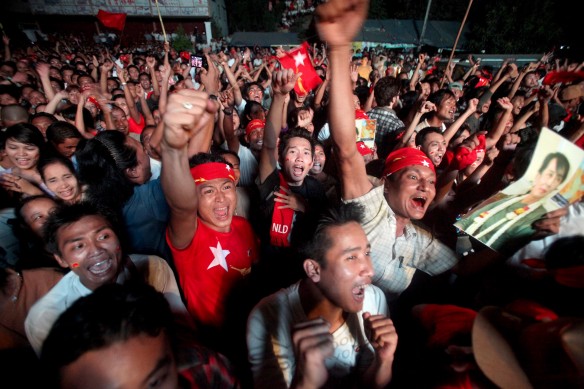
A Burmese Spring?
For the first time since the massacre of protesting monks in 2007, Myanmar is suddenly in the news. The National League for Democracy (NLD) has recently won 43 of 45 seats contested in a recent by-election and their leader and pro-democracy icon Daw Aung San Suu Kyi, beat her rival, former military doctor U Soe Min of the Junta-backed Union Solidarity and Development Party (USDP), in Kawhmu township just outside Yangon. These are the first significant multiparty elections in Myanmar in over twenty years and the results haven’t been simply annulled as they were last time. The NLD even won all four seats in the newly built capital, Naypiyadaw, where powerful men (they are all men) from the military establishment form over …
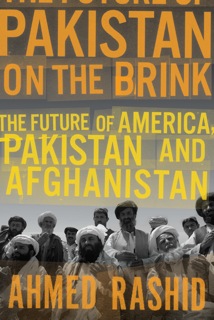
Is Pakistan a bigger problem than Afghanistan? A critical appraisal of Ahmed Rashid’s ‘Pakistan on the Brink’
Ahmed Rashid, the veteran Pakistani writer on the conflict in Afghanistan and Central Asia, has authored another book, titled Pakistan on the Brink: The Future of America, Pakistan and Afghanistan. A sequel to his four earlier books on the subject since mid-90s, especially Descent into Chaos (2008), the study underlines the precariousness of the Pakistani state’s chances for survival and the urgent need for policy resolutions. It also explains the causes of the recent deterioration in US-Pakistan relations and how they can be rectified; pinpoints factors responsible for the failure of the Obama Administration’s approach towards Pakistan and the Afghan war; and suggests ways to stabilise Pakistan and achieve a lasting peace in Afghanistan, amid the withdrawal of US and …
Dealing with Iran’s Nuclear Ambitions — and what it means
In the last few weeks, there has been a flood of articles asking and seeking to answer, ‘What is Iran thinking?’. It is an important question and I certainly don’t have an answer. But to try and understand Iran’s motives, we need to put its actions in the social and political context of the norms of the current non-proliferation ‘regime’ and the nuclear reality of today’s world. The media discourse on Iran and nukes should bring to the forefront an old but significant question about the relevance (or rather the irrelevance) of nuclear weapons and the failings of the non-prolifeation regime. This are not new queries. But as much as it sounds like old wine in a new bottle, we …
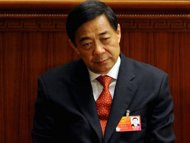
Bo Xilai’s ouster is about Chinese party politics – and fears over his popularity
As the most high profile ouster in the Chinese Communist Party (CCP) since 1989, the departure of Bo Xilai, a high-level Party official, illustrates two matters. First, it demonstrates that the consensus of collective leadership and demand for Party unity remains very strong. But second, it reflects the increasing strain on the Chinese political system and casts doubt on its capacity for change. A bit of background. After 1978, the CCP embarked on a political strategy to consolidate its hold on power that was based on collective leadership. This choice was informed foremost by the necessity to prevent the rise of another Mao-like autocrat; but a second key principle insisted on keeping leadership divisions out of public view. This policy …
Solve Syria, Don’t Provoke Iran
From Project Syndicate in Collaboration with Martin Van Creveld: Israel is daily ratcheting up its threats to attack Iran over its nuclear program. Unfortunately, these threats have come to overshadow more pressing events in Syria, which is the epicenter of a regional crisis that will determine the future of the Arab Spring, as well as Iran’s role in the Middle East. Throughout 2011, the Arab uprisings were driven by each country’s internal dynamics. Yet the disparate movements were united by the pursuit of freedom, dignity, and economic opportunity. Now this liberal narrative is breaking down. Chaos reigns in Egypt and Libya, where post-revolution authorities are proving too brittle either to consolidate their authority, or to incorporate more popular forces. In …
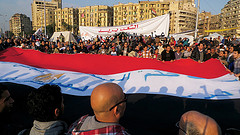
An absent-minded Islamic Revolution? The rise of the Islamists after the Arab Spring
The Arab world shocked us twice in recent months, once with the eruption of the revolutionary spring, and again with the sweeping to power of Islamist parties. The revolutions have radically shifted the political map of the region and transformed the world’s perception of its politics, and even transformed the world. But the equally unanticipated, and very decisive, ascendancy of the Islamists, from Morocco to Kuwait, has confused many observers. Already some are repeating the old adage, voiced most provocatively by Elie Kedourie in 1992, that the Arabs do not comprehend, let alone desire or deserve democracy. It is interesting that Kedourie was responding to the results of an opinion poll which showed that the majority of Egyptians supported democracy, …
Prospects for Chinese Economic Reform: It’s all down to politics
Last week the World Bank released a massive 400-page report, China 2030, outlining a vision for reforming the country’s economy over the next two decades to ensure continued success. As is typical in these kinds of reports, the main findings are completely reasonable if not exactly ground-breaking: China needs to increase the share of consumption in its economy, lessen the grip of state-owned enterprises, move toward letting the market more accurately price energy and capital, deal more seriously with environmental degradation, and just generally become a more market-oriented economy. All of which makes perfect sense, and indeed very sensible people have been suggesting more or less this same package of reforms for several years now. But this is all easier …









